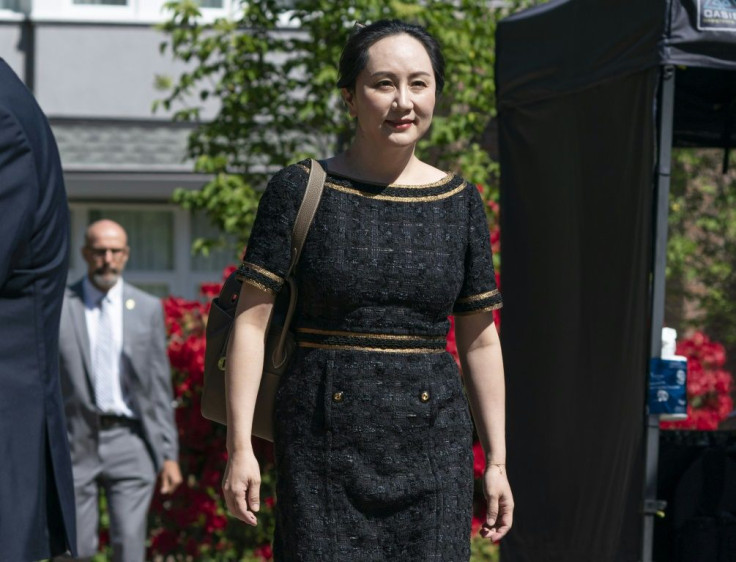Halt Extradition Of Huawei Exec Says Former Canada Supreme Court Justice

Canada's government has the authority to halt the extradition of a Huawei executive and should do so as part of efforts to secure the release of two Canadian citizens detained in China, a former Supreme Court Justice has said.
Former diplomat Michael Kovrig and businessman Michael Spavor were detained by Beijing in December 2018, days after Canada's arrest of Meng Wanzhou in Vancouver on a US warrant alleging use of a covert subsidiary to sell to Iran in breach of US sanctions.
Her arrest sent China-Canada ties to rock bottom, and Beijing has since blocked billions of dollars worth of Canadian agricultural exports.
Prime Minister Justin Trudeau has rejected proposals from former senior officials to intervene and release Meng in exchange for the repatriation of the two Canadians, citing the independence of the judiciary.
But former Supreme Court justice Louise Arbour told Radio Canada on Tuesday that it was "high time for the [justice] minister to exercise his authority, his responsibility under the law and put an end to this process."
"From the beginning it was not in Canada's interest to go ahead with this extradition request from the United States," added Arbour, also a former UN High Commissioner for Human Rights.
She added Meng is accused by Washington of violating "unilateral American sanctions against Iran" that Ottawa has never applied.
On Wednesday, Chinese foreign ministry spokesman Zhao Lijian told a regular press briefing that "Canada's justice minister has the power to end Meng Wanzhou's extradition process at any time."
"This shows that Canada's government can enforce the law impartially in accordance with its own laws," he said.
Zhao reiterated China's position that Meng's case is a "serious political incident" and called for her to be released.
Meng, the eldest daughter of Huawei founder Ren Zhengfei, has been out on bail and living in a mansion in Vancouver, while the two Canadians remain in China's opaque penal system.
On Friday China's Supreme People's Procuratorate said it had begun the prosecution of Kovrig and Spavor, who were "suspected of foreign espionage" and "providing state secrets."
US Secretary of State Mike Pompeo Monday demanded that China free the two Canadians, and said in a statement that his country "rejects the use of these unjustified detentions to coerce Canada."
Australia, Britain, France, Germany, the EU and others have also pressed China over the detention of the Canadians.
© Copyright AFP {{Year}}. All rights reserved.




















